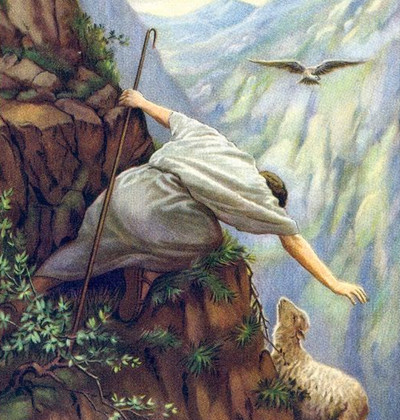I read a news item a while back reporting how the transit authority of a Connecticut town had asked its patrons to help them improve the services they were giving. They asked folks who used their transit system on a daily basis to use their cell phone cameras to document deteriorating facilities, graffiti and other inoperable systems or unacceptable conditions, and to forward them to their main offices so that they could work to provide better service and better conditions for everyone involved. They wanted their patrons to feel that they had valuable input and a stake in making their transit system the best in the area. After all, who would have a better knowledge of “daily life on the rails” than those who rode the trains day after day?
 As I meditated on today's readings, I was surprised that my first thoughts were those of the Synod on Synodality, now nearing its final sessions. Fundamental to the synodal process is the principle that the whole of the people of God must take part in the process of discernment that guides the church in its sacred mission to proclaim the Gospel of Jesus Christ. I can't help but wonder what might become of the Church if our leadership would take up the same challenge as that Connecticut town and honestly ask our people to collaborate more fully with them in an effort to improve the life of the faith community.
As I meditated on today's readings, I was surprised that my first thoughts were those of the Synod on Synodality, now nearing its final sessions. Fundamental to the synodal process is the principle that the whole of the people of God must take part in the process of discernment that guides the church in its sacred mission to proclaim the Gospel of Jesus Christ. I can't help but wonder what might become of the Church if our leadership would take up the same challenge as that Connecticut town and honestly ask our people to collaborate more fully with them in an effort to improve the life of the faith community.
It would seem obvious to look at the warning in today's reading from Jeremiah and focus only on his indictment of the "shepherds who mislead and scatter." But while the rulers are blamed and threats are leveled against them, there is a promise for a brighter future. God is stepping in to "gather the remnant" and to bring them back from exile. To accomplish this renewal, God promises to appoint shepherds who will fulfill their appointed office faithfully.
Another point of interest is this. Throughout Mark's gospel those following Jesus are usually called "disciples." But in today's passage they are called "apostles." It is the only time in the gospel that Mark uses that title. It's a new name for them and suggests a new relationship with Jesus. The Shepherd is preparing "apostles" to be sent in his name to teach and act as he did. The promise we heard in Jeremiah is being fulfilled in Jesus and through him it is being fulfilled in us.
It is not far-fetched to think of ourselves as "the remnant." But it is likewise critical for us to realize that we are also called to be "apostles" - and to be "shepherds" as well. Being both "remnant" and "apostles" should give us a clue as to what seems to be clear in our first and third readings. We are not a scattered and needy people out on our own and left to put our house in order by ourselves. We are led by the Spirit and we can only be the church Jesus meant us to be by working together, listening to each other and facing together what divides and destroys our communal bond.
As a community of faith we are in need of healing and renewal. Each of us can play a part in this moment's potential for growth, by finding ways to speak to one another in His name for the good of God’s people. For only He can heal and renew what has been so wounded in His church. Only He can help us face what divides and destroys our communal bonds. Only He can feed us and heal us so that we can face what assails our society, be witnesses to hope and continue to preach, teach and heal as He did.
In describing his vision for the Church, Pope Francis has said: "A synodal church is a church which listens, which realizes that listening is more than simply hearing. It is a mutual listening in which everyone has something to learn. The faithful people, the college of bishops, the Bishop of Rome all listening to one another, and all listening to the Holy Spirit, the 'Spirit of truth' in order to know what he 'says to the churches.'"
As we continue on in these unsettled times, we will see even more clearly that being an apostle - being a shepherd - is not about "religion" with its doctrines and rules and traditions. It is, above all else, about human life and relationship. This is, after all, what "community" (communion) really means.





